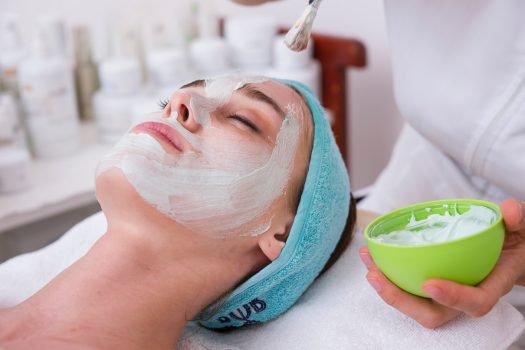Everyone has skin that needs care. Whether you have dry skin, oily skin, or congested skin, there are some simple and effective skin care tips that you can use to get the most out of your daily routine. In this post, we will explore top 10 skin care tips that are sure to help you take care of your skin in the best way possible. From cleansing to moisturizing, these tips will leave your face feeling softer, smoother, and more hydrated.
Moisturize
Moisturize your skin every day to keep it looking healthy and radiant. Here are the top skin care tips:
1. Apply a light moisturizer before bedtime to help lock in the serum you applied during the day.
2. Use a gentle, oil-free moisturizer on dry areas of your skin every morning and evening.
3. Follow up any heavy moisturizers with a light daily sunblock to preserve your skin’s barrier function.
4. Drink plenty of fluids to keep your skin hydrated, especially if you are experiencing dryness or sensitivity. Avoid alcohol, caffeine, and hot drinks as they can dehydrate your skin further.
Exfoliate
When it comes to keeping your skin looking and feeling its best, there are a few things you can do on a regular basis to help. One of the most important is exfoliating. By removing the layer of dead skin cells that build up over time, you will help improve your complexion and allow new cells to grow. There are a variety of ways to exfoliate, so find one that is right for you and stick with it!
Some people like to use a scrub or loofah, while others prefer using a microdermabrasion tool or even Physician’s Formula Eye Restoration Complex Intensive Serum. Whichever route you choose, make sure to apply moisturizer after exfoliating to keep your skin hydrated and protected.
Protect your skin from the sun
If you want to enjoy tanning safely, follow these tips:
1. Always use a sunscreen with an SPF of at least 30.
2. Apply the sunscreen liberally and evenly to all areas of your body.
3. Reapply the sunscreen every two hours, even if you are only going outside for a short time.
4. avoid sun exposure between 10 am and 2 pm during the peak sunburning season (spring and summer)
Use a SPF
When it comes to protecting your skin from the sun, there is no one-size-fits-all solution. However, using a sunscreen with an SPF (sun protection factor) of at least 30 can help reduce the risk of skin cancer and other sun-related problems. Here are some tips for choosing the right SPF:
1. Choose a sunscreen that uses ingredients like zinc oxide or titanium dioxide. These compounds work to reflect sunlight away from your skin, protecting you from harmful UVA and UVB rays.
2. Try a sunscreen spray instead of applying it directly to your skin. Sunscreen sprays allow you to apply sunscreen quickly and easily without having to wash off sand or sweat afterwards.
3. Use a sunscreen every day, regardless of the weather conditions. Even if you plan on staying in the shade all day long, wearing sunscreen will still help protect your skin from the sun’s damaging rays.
4. Reapply sunscreen every two hours, even if you’re only going outside for a short time. The sun’s ultraviolet radiation is strongest when it’s hot and bright out, so being proactive about Sunscreen use means less exposure overall on your skin!
Use antioxidants
Antioxidants are important for healthy skin because they help to protect cells from damage caused by free radicals. Free radicals are created when the body breaks down molecules, and they can cause inflammation and skin problems. Antioxidants can neutralize free radicals and prevent damage to skin cells. Some of the most common antioxidant supplements include vitamins A, C, E, and beta-carotene. You can also make your own antioxidants using ingredients like blackberries, berries, citrus fruits, green tea, herbs such as rosemary or sage, and nuts or seeds.
Choose the right skin care products
When it comes to taking care of your skin, there are a few things you can do to help improve its appearance and health. Some of the best tips for improving skin health and appearance include using a quality skin care products, following a facial cleansing routine, using an antioxidant serum, and avoiding harsh sun exposure.
Skin care products play an important role in maintaining healthy skin. It is important to select high-quality products that will help promote regeneration and reduce the appearance of wrinkles and other signs of ageing. When selecting skin care products, it is important to look for products that are free from harmful chemicals, including sulfates and phthalates. Additionally, it is important to choose products with antioxidant properties to help protect the skin against damage caused by free radicals.
A facial cleansing routine is another key component of maintaining healthy skin. Cleansing helps remove any excess oils and debris that may be contributing to the development of wrinkles and other signs of ageing. A good facial cleansing routine should include a mild exfoliator followed by a moisturizer or toner. It is also recommended that you use an antioxidant serum before bedtime as this will help protect the skin against damage caused by free radicals during the night.
Use heat safely
When it comes to using heat on your skin, it’s important to be safe and use the appropriate heat sources. Here are some tips for using heat safely:
1. Use a hair dryer sparingly – Hair dryers can cause severe burns if used too frequently or at high temperatures. Use them only when necessary and keep the heat level low to avoid burning your skin.
2. Don’t use a stovetop to cook – Stoves can be very dangerous if not used correctly, as they can easily generate extreme heat that could burn your skin. Instead, use an oven or microwave ovens for cooking purposes.
3. Avoid using saunas or hot tubs – Saunas and hot tubs can be extremely hot, and can cause burns if you are not careful. If you must use one, make sure to go in gradually and maintain a cool temperature throughout the session.
Avoid chemical sensitivities
If you’re one of the estimated 15 percent of Americans who suffer from chemical sensitivities, your skin is likely to react to any number of common ingredients. Here are six top tips for keeping your skin healthy and irritation-free:
2. Avoid products with fragrances or harsh chemicals. Both fragrances and harsh chemicals can cause irritation in sensitive skin.
3. Pay attention to the ingredients list on any product you buy. Many products contain ingredients that can aggravate skin conditions, like fragrances, sulfates, and parabens.
4. Test a new product before using it on your skin. If you have sensitive skin, make sure to test a new product on a small patch of your skin first in order to determine if it will cause irritation.
5. Use only gentle cleansers and toners that are specifically designed for sensitive skin. Cleansers and toners with alcohol or sulfates can be very irritating for those with sensitive skin, so choose mild options whenever possible.
6. Use sun protection as needed when outside in sunny weather. Sun exposure can aggravate many types of skin conditions, including sensitivity to light and sunburns caused by overexposure to UV radiation..
Conclusion
Thank you for reading our top 10 skin care tips article. Here, we have compiled a list of essential steps that everyone should take to maintain and improve the health of their skin. From cleansing to moisturizing, these tips will help keep your skin looking its best! If you have any questions or suggestions, please feel free to leave them in the comments section below. We would love to hear from you!







